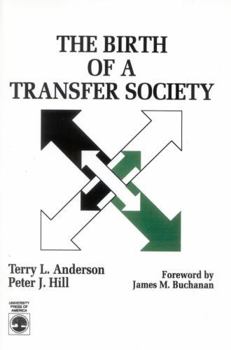The Birth of A Transfer Society
The growth of transfers from miniscule to major proportion of the gross national product has resulted in a decreasing productivity, increasing allocation of resources in obtaining and maintaining transfers, as well as increasing the social tension over the legitimacy and allocation of transfers. The authors of this study trace the historical reasons for the rise of transfers, most specifically in the United States. They offer a detailed analysis of the impact of the entire constitution and its interpretation on economic activity. In their provocative conclusion they argue against the willing surrender of transfer privileges and offer in solution the suggestion that new constitutional provisions be drafted to limit the power of government to effect transfers and reestablish our economic health. For students of Economic History, Public Policy and American Government. Originally published in 1980 by the Hoover Institution Press.
Format:Paperback
Language:English
ISBN:0819175633
ISBN13:9780819175632
Release Date:October 1989
Publisher:University Press of America
Length:130 Pages
Weight:0.45 lbs.
Dimensions:0.3" x 6.0" x 9.0"
Customer Reviews
0 rating





